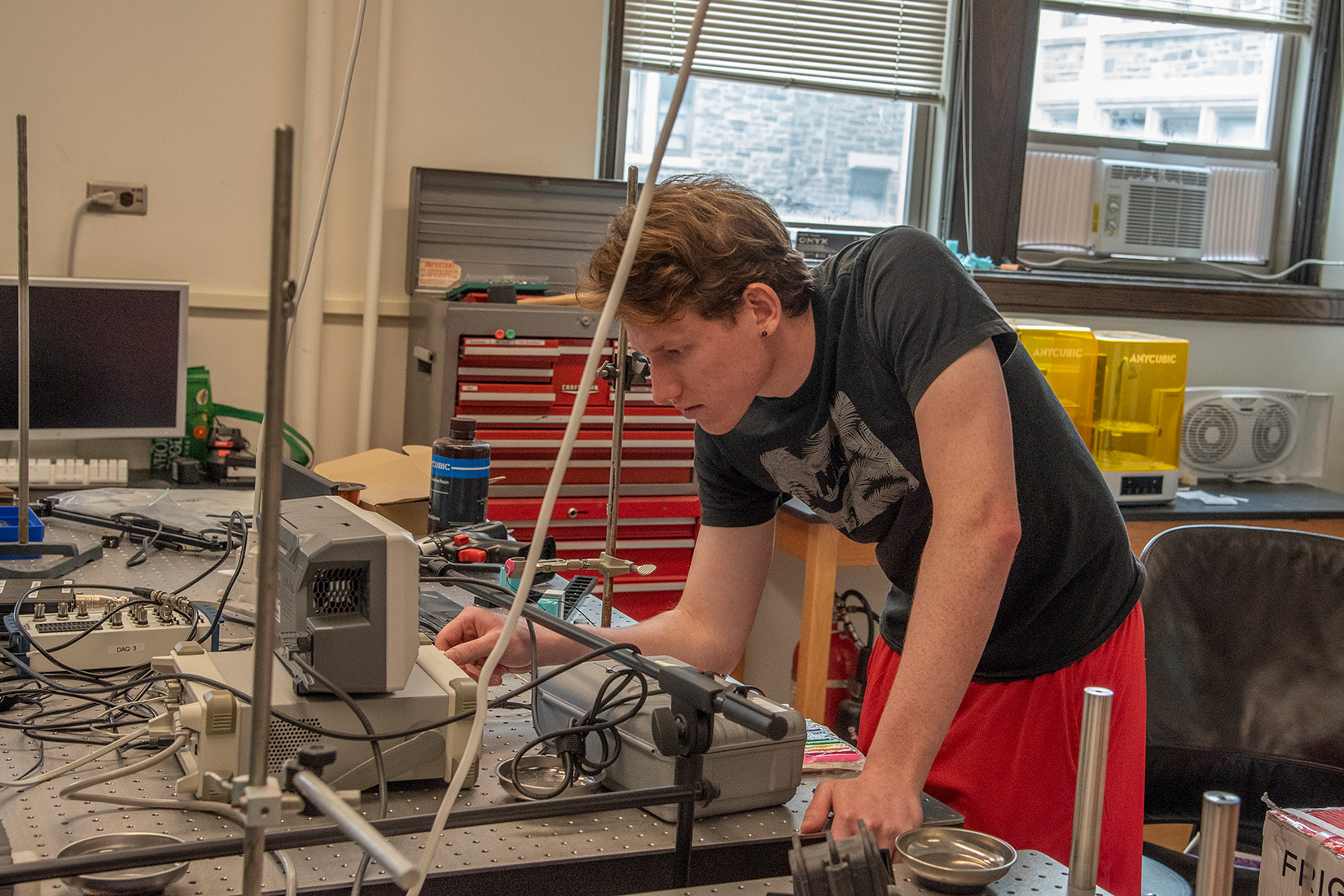
Jackson Saunders, a senior physics major, studies sound in a lab at Fordham. Photo by Chris Gosier
Jackson Saunders is spending his summer at the forefront of acoustics research. Working in a lab at the Rose Hill campus, he’s building a series of chambers that could demonstrate new ways of directing and controlling sound—with applications ranging from better soundproofing to noise pollution controls and more.
The project, supported by a Fordham research grant, is just the latest of his many explorations at the University—from clubs to classwork to New York City life—that have inspired the rising senior and informed his ambitions.
Bridging Physics and Other Fields
Saunders, a native of Hawaii, is a physics and philosophy double major who came to Fordham because of its opportunities in physics as well as its New York location.
“I love being in New York City,” he said, citing the sheer human diversity, easy transit, all the museums, and round-the-clock energy that convey a sense of possibility. “It’s everything everyone ever says about New York.”
Through Fordham’s liberal arts courses, he was able to explore a variety of topics and see their similarities. And a two-year independent study allowed him to explore his interest in science education: Working with associate physics professor Christopher Aubin, Ph.D., he helped bring peer teaching and more active learning to an intro physics lab for his younger Fordham counterparts.
He's passionate about scientific literacy. “I feel that science education is so important in this day and age,” he said, “and not necessarily knowledge about physics, but more so the ability to think critically in a scientific way, to rely on clear-cut evidence.”
Self-Directed Learning via Fordham Clubs
Saunders serves as president of Fordham’s astronomy club and its chapter of the Society of Physics students, as well as operations director of the Fordham Philosophers' Society, among other activities.
“Clubs at Fordham have been very instrumental in making me who I am today, in that I'm able to explore academics in a non-academic environment with my friends” and engage in self-directed learning, he said. “I love having had the opportunity to step into these leadership positions.”
Looking ahead, he’s planning to apply to master’s degree programs in medical physics, as well as doctoral programs in both philosophy and physics at some point. His summer research project, meanwhile, continues to inspire him with its possibilities for driving innovation.
“I think just every physicist is kind of captivated by that notion of pushing the leading edge of human knowledge forward,” Saunders said. “And to be on that frontier just feels great.”